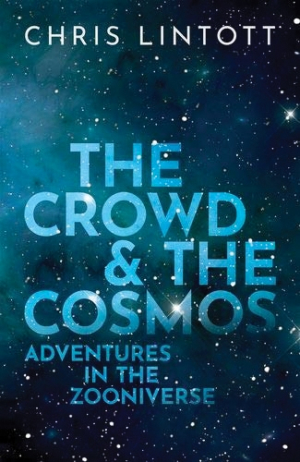The Crowd and the Cosmos
Adventures in the Zooniverse
Citizen science might seem like a model for discovery that could only work in the internet age, but amateur involvement in science is in fact nothing new. In The Crowd and the Cosmos, Oxford Professor of Astrophysics Chris Lintott gives examples of collaborative projects from the history of science as well as glimpses into some of the successful projects he’s overseen via the Zooniverse platform, which he created in 2007.
Scientists aren’t all unapproachable geniuses, Lintott asserts. Many are ordinary people working hard to produce results. Games and competitions have become popular ways of attracting lay participation, but it all still boils down to being motivated by a pure “love of science.” “Knowledge expands because of the effort we put in,” and it’s an industrious cycle. The more data that’s generated, the more scientists are needed, and “that, dear reader, is where you come in.”
Noting that the tradition of keen amateurs collaborating with professional astronomers and naturalists dates back at least to Charles Darwin’s time, the book cites key ongoing schemes, including the Sloan Digital Sky Survey, the Human Genome Project, and the Audubon Society’s Christmas Bird Count. Lintott remarks that today’s citizen science plays out with laypeople adding small numbers of everyday observations to a massive collection of data. But there are also single-handed discoveries, including an Australian car mechanic and a retired English police inspector finding planets new to scientific knowledge.
Its content limited by Lintott’s specialty, the book places most of its emphasis on astronomy. A chapter about Penguin Watch in Antarctica is a break from this focus, as are mentions of other Zooniverse projects, including Old Weather, Snapshot Serengeti, and Shakespeare’s World. The Crowd and the Cosmos is a thorough, accessible primer to how ordinary people can make valued contributions to science.
Reviewed by
Rebecca Foster
Disclosure: This article is not an endorsement, but a review. The publisher of this book provided free copies of the book to have their book reviewed by a professional reviewer. No fee was paid by the publisher for this review. Foreword Reviews only recommends books that we love. Foreword Magazine, Inc. is disclosing this in accordance with the Federal Trade Commission’s 16 CFR, Part 255.

